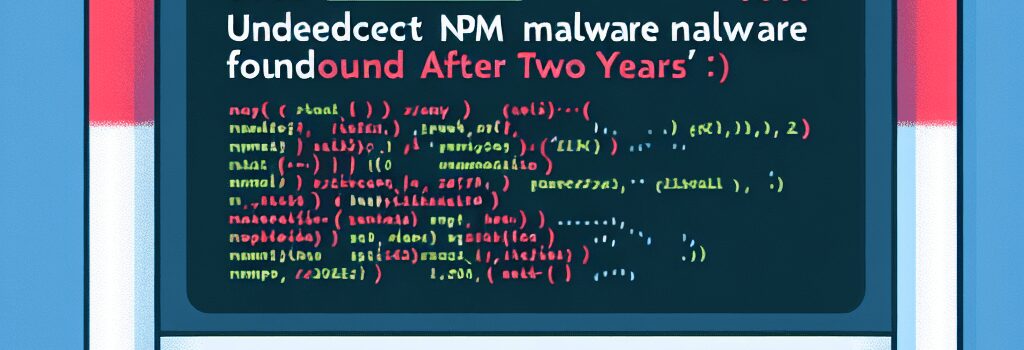Undetected NPM Malware Found After Two Years

Security researchers at Socket have uncovered eight malicious packages in the NPM registry that quietly amassed over 6,200 downloads from June 2023 through August 2024. Disguised under names resembling popular React, Vue, and Vite libraries, these packages deployed time-triggered payloads engineered to corrupt or delete data across Windows and Linux development environments.
Attack Overview
Each of the eight typosquatting packages executed one or more destructive tactics:
- Targeted File Deletion—removing
node_modules/vue/distor other framework artifacts via OS-agnostic shell commands. - Prototype Corruption—injecting random bytes into
Object.prototypeto break core application logic. - Browser Storage Sabotage—corrupting localStorage, sessionStorage, and IndexedDB, causing intermittent authentication failures and lost user state.
- Forced Shutdown—leveraging
process.exit(1)alongside OS signals for abrupt host reboots, disrupting CI/CD pipelines.
Technical Deep Dive
The malware employs hard-coded activation dates. A representative snippet:
if (Date.now() >= new Date('2023-07-15T00:00:00Z').getTime()) {
// perform destructive actions
}
To evade static analysis, key functions are base64-encoded and unpacked at runtime via Buffer.from(...) and eval(). Cross-platform path resolution is handled dynamically:
const sep = process.platform === 'win32' ? '\\' : '/';
const target = [__dirname, 'node_modules', 'vue', 'dist'].join(sep);
fs.rmSync(target, { recursive: true });
Real-World Impact
One fintech startup installing vue-plugin-bomb experienced catastrophic staging failures hours before a major release. Incident response teams spent over eight hours restoring from backups, highlighting how these covert payloads can grind delivery cycles to a halt and undermine developer trust.
Supply Chain Implications
This campaign underscores the escalating threat of supply chain attacks in open source ecosystems. In 2024, malicious incidents on NPM rose by over 30%, driving npm, Inc. and GitHub to roll out mandatory two-factor authentication, automated tarball scanning, and enhanced namespace policies.
“Time-triggered payloads combined with typosquatting create stealthy attacks that evade casual code reviews,” warns Dr. Eva Chen, OpenSSF security lead. “Implement reproducible builds and cryptographic code signing to detect anomalies early.”
Mitigation Strategies
- Enforce mandatory 2FA for all npm maintainers and high-risk packages.
- Integrate SAST/SCA tools such as Snyk, GitHub Dependabot, or npm audit within CI/CD pipelines.
- Verify tarball checksums and pin direct and transient dependencies.
- Adopt private registries or offline mirrors (e.g., Verdaccio) to vet external packages before use.
- Use lockfile enforcement flags (e.g., Yarn’s
--immutable) to prevent unauthorized updates.
Developer Best Practices
Regularly run npm audit or yarn audit, avoid loose semver ranges (^ or ~), and monitor unusual spikes in package downloads or naming collisions. Educate teams on identifying typosquatting patterns and anomalous post-install scripts.
Future Outlook
In response to growing supply chain threats, NPM v8 is slated to include per-package encryption and embedded provenance metadata. Meanwhile, the Node.js Technical Steering Committee is evaluating new integrity-checking mechanisms at module resolution time to block unauthorized code execution.
Conclusion
The discovery of these destructive NPM packages is a stark reminder that open source ecosystems demand rigorous security hygiene. By combining technical controls, continuous monitoring, and developer education, organizations can significantly reduce the risk of covert supply chain sabotage.